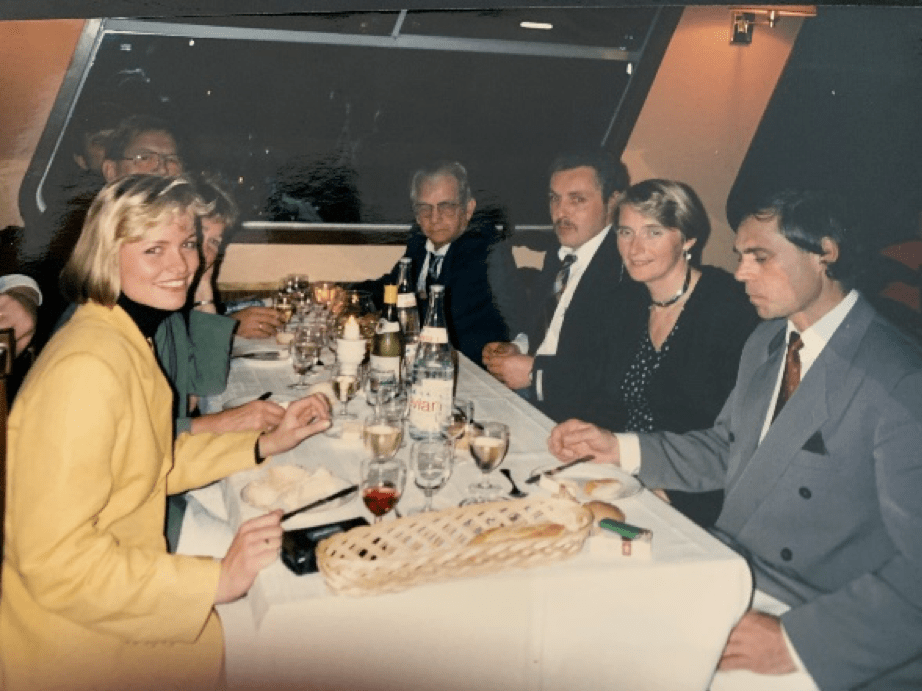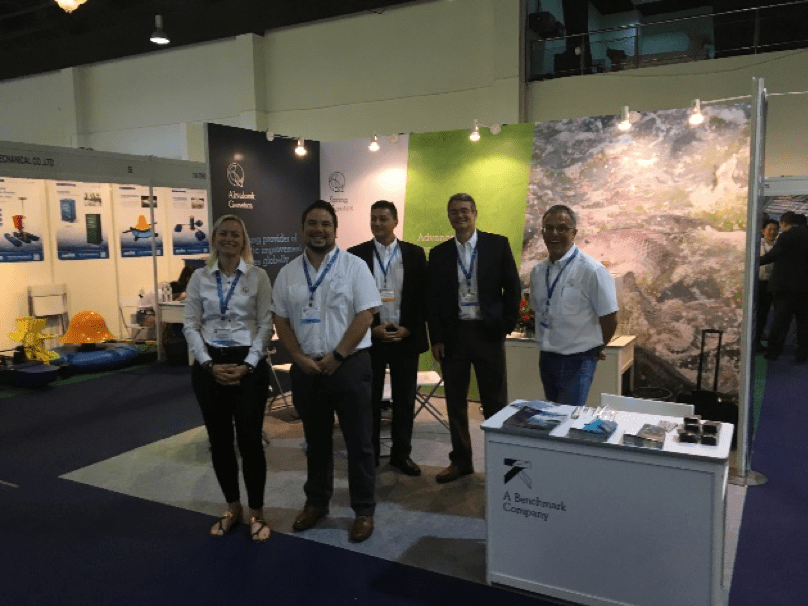Benchmark Genetics Marketing Director Birgitte Sørheim discusses why aquaculture is a much more attractive industry for women than it used to be, what diversity means to her, and why she wants to see more female CEO’s in aquaculture.
What attracted you to the aquaculture industry?
When I was a child I grew up in Bergen near the coast and I’d always go to the sea with my family. We’d rent cabins and walk on the beach and swim. Then I moved to Brussels when I was ten years old and lived there for 6 years. There was no ocean, so when I came back to Norway I really enjoyed being close to the sea again and I took up scuba diving. When I was finishing secondary school there was a new engineering course at Bergen University College in Aquaculture Technologies. The salmon farming industry had started to emerge at that time, although it was much smaller than it is today. I thought it was really interesting and might be an industry for the future. I began the course in 1988 and spent three years studying Aquaculture. The content was quite different to today, as advanced IT technologies and RAS systems were still not available. The first role that I secured after graduating was at Lerøy Seafood Group in Sales and Marketing. I later took an MBA in Branding and an MBA course in Strategic PR and Communications to pursue my career within Marketing.

What do you enjoy the most (and least) about your role?
What I really like is my ability to combine skills in marketing and communications to influence the industry. From a genetics point of view, we are the first stage of the value chain. By understanding the markets, tailoring our messages and communication and engaging in the product development processes, we are able to influence the industry. I see, with all of the challenges that the industry is facing, that genetics is very important in terms of helping the industry to grow by creating resistance to diseases, producing faster growing animals and improving the yield and fillet quality. I’m part of a team that can make real changes to the industry. I also really enjoy working with such a great group of people. Everyone has very defined roles, they are all very dedicated and skilled. It’s a really successful combination of people. Regarding what I like the least, I would say that being based in Norway I am quite far away from our shrimp and tilapia customers. Obviously, with no longer travelling we are also not able to meet up with those customers as much as we did pre-Covid-19.

Tell us about the team you work with.
I have a very good team – the dream team! It’s very international, having Jorge from Uruguay, who is Spanish speaking but also has a full range of languages, then there is Julia from Ukraine and myself from Norway. It’s a good combination of people and cultures. Also, two thirds are women, which is great in the context of this interview! We cover a lot of skills in the team, from marketing, communications and advertising, to the scientific part. Everyone is very dedicated and hard working. We also all really believe in the mission of Benchmark.
As a marketer, can you tell us why marketing is so important?
It’s a key strategic role, fundamental to the success of a business. It’s essential to make sure that customers, potential customers and important stakeholders are aware of the business. As a company, people need to understand what you do, who you are, how you are different to your competitors, and how you are able to fulfil your customer’s needs. If a company is not doing that it will not succeed as a business. It’s also an important function in terms of gathering insights that feed into product development. This ensures that we are promoting products in the best way to the market to obtain the sales we need to succeed commercially. In a business to business set up it is important to establish relations with customers and marketing plays an important role in supporting sales in developing and maintaining those relationships.
What is your recommendation to other women joining the aquaculture industry?
I think the industry has changed a lot since I joined. When I joined, I think the median production was around 250,000 tonnes, now it has passed 2.5 million tonnes – so a 10-fold increase! It’s become much more professionalised. I think young women today are very highly educated, they are actually winning the academic fight. In Norway the most difficult studies to enter at the Universities have a higher percentage of women than men. I think there’s a lot of opportunities in our industry to bring in very highly skilled, professional women. My recommendation would be that this is an industry for the future. Food production is essential and as you can see with the Covid-19 crisis we are succeeding despite this crisis because it’s something that the world needs. Also, the industry is evolving so much technologically. It’s much more advanced than it used to be, with things like artificial intelligence and big data. In biotechnology there’s also so many interesting jobs available. My recommendation would be to take those opportunities and also to evolve and make sure that you get your managerial skills in place, because we need more women in management positions. There are too few today, if you look around it’s still a very male dominated industry. It’s also important to make sure you are not being held back as a woman. As an industry we should be committed to helping women to succeed. Sometimes I’m a bit ashamed, that there are no female CEO’s in the Seafood listed companies at the Oslo Stock exchange. I think the industry has an obligation to promote and train and motivate women in-house so that women joining the industry have some role models. We need to see more women in top roles and I think it’s moving too slowly. So many young professional women will quit if they don’t see any progress. Maybe one day we’ll see a female CEO at Benchmark!

What does diversity mean to you?
To me diversity means that each human being is evaluated on who they are as a person rather than their sex, skin colour, religion or sexual preferences. That they are evaluated instead on their personality, experience and skills. That’s something we need, as managers, to have in the back of our minds when we are recruiting. We sometimes have a tendency to create teams of people who are similar to us, but perhaps we should be challenging ourselves to get influences from different kinds of people with different experiences.
What did you think when joining the industry versus what you think today?
Like I said, it’s changed so much, it’s much more professional. Also, there is more of a focus on sustainability. When I joined the harvest stations would flush blood water into the sea and there were fish dying on the side and thrown into the water. There has been criticism towards the industry and some of that criticism has been valid, but now with the refocus on sustainability it’s much more forward-looking and this will make the industry much more attractive.
What could Benchmark keep doing / start doing to attract women to the industry?
We have managerial courses and we should ensure that women are joining them.
Why is it okay to not be perfect?
Perfectionism is sometimes a problem for women as we are often too hard on ourselves. You try to be perfect, continuously feeling you are not good enough, and could have done better. That definitely tends to be more of a female trait than male. Men tend to be more happy-go-lucky, but women are harder on themselves. I think, as women, we should also be good at telling each other that we’re good enough. We should be better at appraising each other positively. It’s okay not to be perfect. If there are mistakes made – and there will be – we shouldn’t criticise but see it as a learning opportunity. It’s important that we are allowed to fail.

What do you enjoy doing outside of work?
I’m quite active and one of the good things about living in Bergen is that we have both the mountains and the sea right on our doorstep. My main hobbies are hiking, skiing in the winter and sea kayaking in the summer.
What’s your favourite meal?
My favourite meal is reindeer fillet, it’s fantastic. It might seem like a strange choice if you’re not Norwegian as you think of Rudolph with his red nose, but it’s a delicious meal. As an everyday meal I eat a lot of salmon, so I’m a good supporter of the industry.
What’s your favourite aquatic animal, and why?
Lumpfish. They’re fantastic, they’re so cute. They have a little sucker on their belly so they can suck different surfaces. They have a funny colour and look like a little troll. They also do an important job for the industry by eating sea lice.



